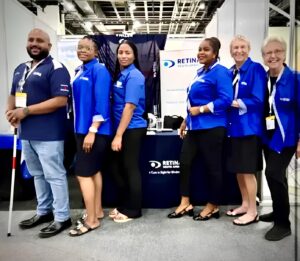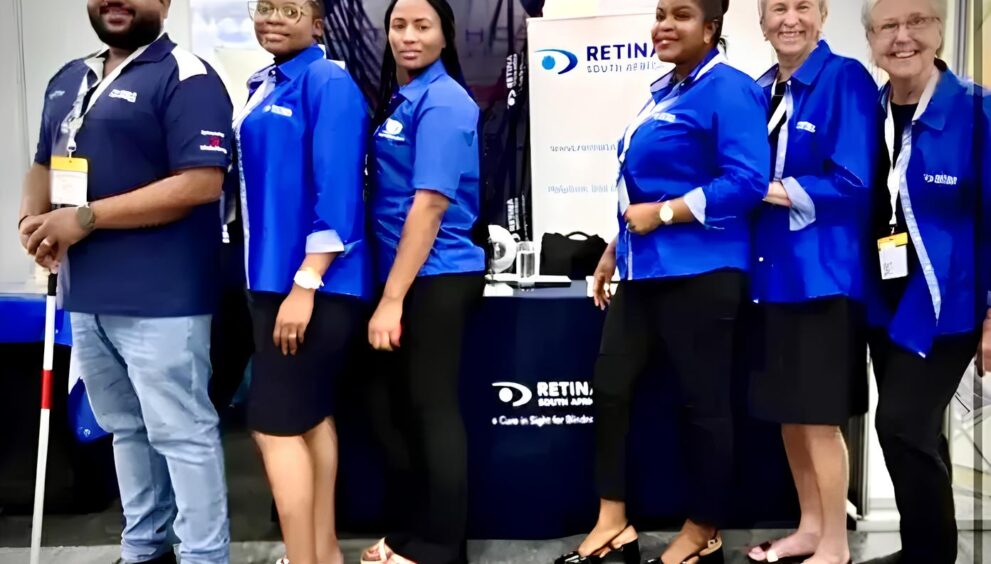 On June 24, 2025, Bayer South Africa and Retina South Africa marked their seventh consecutive year of partnership, reaffirming a shared commitment to raise public and professional awareness of retinal diseases—particularly age-related macular degeneration (AMD) and diabetic retinopathy—that threaten millions of South Africans with vision loss.
On June 24, 2025, Bayer South Africa and Retina South Africa marked their seventh consecutive year of partnership, reaffirming a shared commitment to raise public and professional awareness of retinal diseases—particularly age-related macular degeneration (AMD) and diabetic retinopathy—that threaten millions of South Africans with vision loss.
South Africa faces a dual challenge; an aging population and a surge in diabetes diagnoses. These factors have driven up the incidence of retinal complications, as damage to the retina’s light-sensitive rods, cones, and nerve layers disrupt sight and, if left untreated, can lead to permanent blindness.
In 2020, roughly 200 million people worldwide lived with AMD with projections estimating this will climb to 288 million by 2040, accounting for nearly 9 percent of global blindness. AMD primarily damages the macula, the retina’s central region responsible for sharp vision, and presents in two forms: Dry AMD, the more common type (about 80 percent of cases), which progresses gradually and Wet AMD, less prevalent but far more aggressive, arising when abnormal blood vessels grow beneath the retina and leak fluid or blood, creating central blind spots.
Between 2010 and 2019, South Africa’s diabetic population jumped from 1.3 million to 4.5 million, and is expected to reach 6 million by 2030—nearly 10 percent of the population. Diabetic retinopathy stems from damage to retinal blood vessels and often remains symptomless, until advanced stages when patients experience floaters, blurred or fluctuating vision, and dark patches in their field of view. Over half of all individuals with diabetes will develop some degree of retinopathy during their lifetimes.
Retina South Africa’s research and patient surveys highlighted critical gaps; there is a low public awareness of retinal disease symptoms and risk factors, leaving many unsure as to when, how or where to seek care. A shortage of eye-care specialists, particularly outside major urban centers has increased retinal care challenges and makes the stride to publicize retinal health care more difficult. To add up to the mountain of problems, there’s a limited access to comprehensive support services such as orientation and mobility training, occupational therapy, and psycho-social counseling, which are vital for those coping with vision impairment.
To confront these challenges, Bayer South Africa and Retina South Africa have rolled out a holistic advocacy and education campaign that includes live and virtual sessions for both eye-care professionals and at-risk communities, covering prevention, early detection, referral pathways, and treatment options.
The collaboration has also made engagement with Healthcare Funders through dialogues with insurance providers and public health payers to underscore the importance of preserving access to essential treatments for retinal conditions. Multi-platform media initiatives and community events have also been designed to demystify retinal diseases, encourage regular eye screenings, and promote healthy lifestyle measures (diet, exercise, stress management) that can mitigate risk.
As retinal diseases continue to surge in prevalence, this enduring collaboration between Bayer South Africa and Retina South Africa exemplifies a shared vision, one where early detection, comprehensive care and informed communities converge to preserve sight and quality of life.




